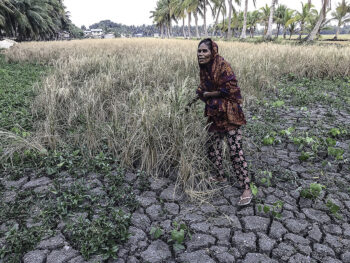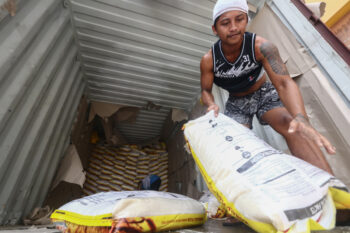GENERAL SANTOS CITY (MindaNews/19 February) — Of the many promises Rep. Manny Pacquiao made during the 2010 election campaign, one particular project resonated most to his supporters – building a provincial hospital for the province of Sarangani.
To many who are not familiar with the demographics of the province, building a local government-run hospital may sound a piece of cake for Pacquiao whose political clout exponentially rose when he won in the congressional race against the Chiongbians.
During the height of his training against Antonio Margarito last year, Pacquiao skipped a day of his schedule to meet Philippine President Benigno Aquino III purportedly to discuss the budget for the hospital. Apart from saying that the budget for 2010 was already exhausted to accommodate his request for allocation, there were no significant announcements from the camp of Pacquiao as to the status of his promise.
In several weeks’ time, he will again jump into serious training for this May 7 fight against Shane Mosley. So it is safe to say that no major announcements will be made on the said priority project of Rep. Pacquiao.
However, the lull in performing his congressional duties should give his congressional staff time to advise Rep. Pacquiao of his priorities.
Sarangani is one of the few provinces, if not the only one, with an area that is not contiguous. Its seven towns are separated in the middle by General Santos City. Of the seven, six are coastal towns – three towns each in the eastern and western sides of the city. Residents from the landlocked town of Malungon cannot reach the capitol of Alabel without passing General Santos City.
Sarangani is also one of the poorer provinces in the Philippines with an annual budget of slightly over P400 million of which more than 45 per cent goes to personnel services or salaries and wages of its workers.
Since health services have been devolved to local government units, the costs of running and operating a provincial hospital are now in the hands of the provincial government.
Now, if Rep. Pacquiao sticks to his promise of building a hospital, it should at least be at par with the bigger hospitals in General Santos City in terms of beds, facilities and medical staffing.
Constructing a modest 100-room hospital complete with basic facilities could easily reach a turnkey cost of at least P250 million.
The annual cost of operating it could then run up to P80 million, as in the case of the 100-bed General Santos City District Hospital. The annual operating cost of the 200-bed privately-owned General Santos Doctors Hospital runs up to P150 million, excluding the professional fees of their medical staff.
While P250 million could be sourced from and appropriated by Congress, its maintenance, operating and other expenses (MOOE) and cost of personnel services will have to be provided by the local government unit. This is where the problem may arise.
Assuring the continued operation of a hospital without straining the capacity of the Sarangani province government to deliver other basic services and infrastructure projects however will be a next to impossible task given the fiscal health of the local government unit.
Government-run hospitals, as in the case of the Philippines, are hardly sources of revenue for local government enterprises. Luring health professionals to work for local government units at presently mandated government rates will likewise be a tall order.
While a provincial hospital will certainly score political points and eventually be best for residents of Sarangani in the long run, this may not be the appropriate time for its construction given the circumstances.
The last thing the province needs is a white elephant, an edifice that may be pleasant to see but a thorn on the fiscal side of local governance.
It would do well for the lone congressman from Sarangani to help upgrade facilities of existing hospitals in Kiamba and Glan, in the meantime, and encourage local government units to improve their preventive health care programs while the provincial government builds up its fiscal capacity. (Edwin G. Espejo writes for www.asiancorrespondent.com)







